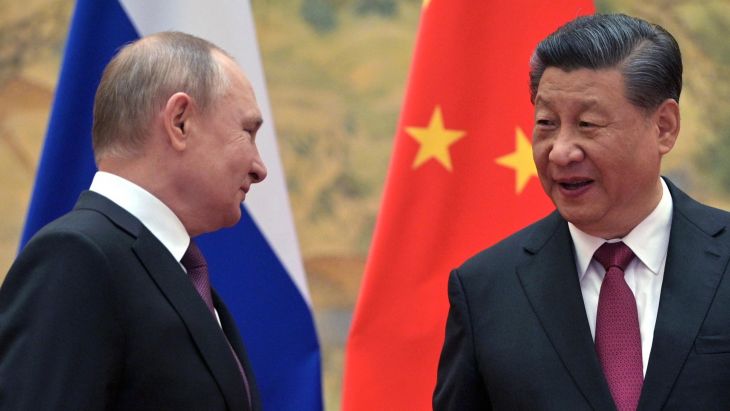In his testimony before the U.S. House Foreign Affairs Committee on July 20th, Evan Ellis, Senior Associate with the Americas Program of the Center for Strategic and International Studies (CSIS), reported that, in recent months, Russia has deployed military equipment, troops, and mercenaries to Venezuela and provided technical assistance to the Maduro regime.
Since 2006, according to CSIS, Russia has sold over $11 billion worth of military equipment to the Venezuelan government.
In recent years, Russia has also provided Nicaragua with military equipment and police training. Earlier this year, Nicaragua gave Russia permission to station Russian troops on its territory for training missions and other types of military and police support.
Russia seems intent on challenging the United States directly in its own hemisphere to counter what it perceives is the American encirclement of Russia.
China’s penetration of the hemisphere is more sublime but maybe equally as powerful.
While the United States was obsessed with the war on terror and the invasions of Iraq and Afghanistan, China became Latin America’s most important trading partner and source of direct foreign investment. Its Belt and Road initiative is taking a chunk of the development of the region’s energy and communications infrastructure and China is increasing its military ties with several countries in the region.
The United States and Canada view these activities as threats to their national security.
However, they have yet to decide upon a credible counteroffensive.
Centuries of military and political intervention in the region has limited any appetite for an increased American involvement. The current transition from right wing to left of center governments also makes China and even Russia more acceptable partners for many Latin American countries especially when we consider that their autocratic forms of government put no pressure to implement political, human rights, labor, or environmental reforms.
The U.S. government might lack the political will to compete with China, and the U.S. private sector is cautious with respect to concessionary investments in a region that is quickly becoming leftist and unstable for private sector investment.
China’s focus on soft power—including strengthening cultural and educational ties—has helped Beijing build political goodwill with local governments and populations. The rapid spread of Confucius Centers throughout the hemisphere has served to sensitize local populations to Chinese language and culture and has created a good level of social penetration.
One might argue that the U.S. has a powerful weapon in Hollywood, TikTok, YouTube, and other producers’ films and television programs that have global audiences. But one must keep in mind that a good many U.S. productions not only promote a negative view of the United States as a racist and violent country, but also depict Latin Americans in a very negative light – as criminals and drug traffickers.
Not seductive music to the average Latin American’s ears.
This leads me to ask if the U.S. has the political will to lead in the defense of democracy in the hemisphere?
I don’t know, but my ambivalence with respect to the U.S. leads me to ask if another world economic power such as the European Union (E.U.) can partner with them to play a serious role in countering growing Russian and Chinese influence in Latin America.
A recent report from the EU leaked to Spain’s El País underscored recent European disengagement from the hemisphere. The report underscores Latin American dissatisfaction with the negotiation of free trade agreements. It states that the EU’s current cooperation budget with the region is 3.4 billion euros, and that Brussels is planning to increase its investment capital to 8 billion euros.
But can the combined efforts of the United States and the EU, with their commitment to democratic institutions and human rights, and their need for internal political consensus on major foreign policy issues compete with the Russian and Chinese investments that allow cash-strapped countries to develop their infrastructures at little relative political cost?
Hungary, for example, is a client of China’s Belt and Road initiative, and it has veto power over the E.U., where any decision requires the agreement of all member states. It is also a major recipient of Russian energy products and does not support the current sanctions against Russia for its invasion of Ukraine. Will European leaders like Hungary’s Viktor Orban stand with other EU member states against real or perceived Russian ambitions in the Americas?
This is unclear.
The United States is a divided society and political consensus is difficult to achieve. To the average American voter, Latin America is often seen as the source of drugs and irregular migration. Could they think of the region in geostrategic terms or solely as a source of illegal immigration and corrupt governments?
The EU is focused on its own internal divisions, the rise of nationalist extremism backed by Russia, the war in Ukraine and the lack of stable energy sources and prices, and the major disruptions in production chains in view of the high cost of fuel and the constraints that war has placed on Russia and Ukraine that are affecting food supplies globally.
In my view, the Chinese and Russians are here to stay for quite a while absent any tectonic shift in Latin American voting patterns or in U.S., Canadian, and EU thinking.
Keep reading: GorbachovCNN: More News, Less Views?
Edición: Laura Espejo
